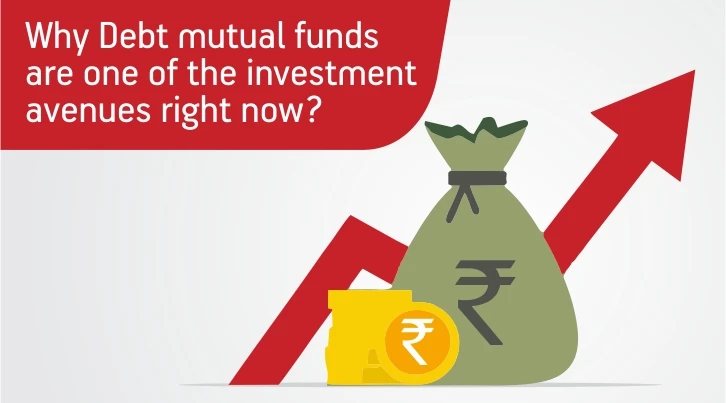-
Our Products
Our FundsFocus Funds
-
Self Care
Self-ServiceFind InformationWays To TransactPartner Solutions
-
Downloads
- Learnings
- About Us
-
More
-
Shareholders
-
Shareholders
-
Updates
-
-
SIP Calculators
- Back
-
Shareholders
How do the Debt funds stack up in the lockdown world?
Sep 21, 2020
4 Rating
The Indian investment landscape is witnessing a rise in interest in debt instruments despite the ongoing crisis.
In fact, market research indicates that more than 91 firms have raised funds through debt offerings in 2020, a stark rebound from the 2019 levels1.
Debt mutual fund schemes noticed a similar pattern, with the net inflows of Rs 1.1 lakh crore for the quarter ending in June 20202.
As a retail investor, these figures could be intriguing, making debt funds one of the investment avenues. However, before you ride this bandwagon, it is critical to understand why debt is garnering so much attention across different investors.

First things first, the RBI has kept the repo rates at the lowest levels we have seen in the past two decades3. Amid the falling interest rates on traditional investment instruments, investors have been looking for alternatives with an aim to earn returns. The potential of debt funds to offer reasonable & tax efficient returns has made them one of the investment options for investors.
Secondly, the volatile equity markets and eroding valuations have kept retail investors on edge, with the majority fleeing towards other options. Debt mutual funds with well managed portfolios are gaining popularity under the current circumstances.
Historically, debt mutual funds have always had the upper hand in the India mutual fund industry. The recent data from the Association of Mutual Funds in India (AMFI) reaffirms the same trend, with debt mutual funds having assets under management worth around Rs.13 lakh crore against Rs.7 lakh crore held by equity mutual funds as on 30th June 20204.
Note: Investors should note that interest environments are likely to change frequently, along with the ongoing inflation and equity market sentiment. You need to analyse these conditions carefully and do not consider past performances as a measure or guarantee of success in your investments.
Past performance may or may not be sustained in the future.
Are you planning to add debt mutual funds to your portfolio?
That brings us to the million-dollar or, rather rupees, question, how to choose debt mutual funds for your portfolio.
Understand the risk involved in debt mutual funds
-
Debt funds are not risk-free, a fact proven by the recent fiasco. There are always chances that enterprises may fail to honour their debt obligations, which could impact the rating of a debt mutual fund schemes.
-
There are 16 different debt mutual fund categories, with each having a varying degree of risk and benefits. It is critical to choose a fund that aligns with your investment goals.
3 Tips for choosing a debt mutual fund scheme for your portfolio
-
Invest in funds with a proven track record. Pay attention towards the track record of the fund and any red flag in terms of delayed dividend distributions or any other matter
-
Work with your financial advisor to choose the right kind of debt mutual fund for your portfolio. There are just too many schemes out there, so loop-in an expert.
-
Invest in high-quality debt funds only. Analyze the portfolio composition and focus on funds with highly rated debt holdings.
So, are you ready to start an investment in debt mutual funds?
Sources:
1. https://www.thehindubusinessline.com/markets/indias-bond-market-is-so-hot-even-yoga-guru-ramdev-is-selling-debt/article32371787.ece
2. https://www.news18.com/news/business/debt-mutual-funds-see-rs-1-1-lakh-crore-inflow-in-june-quarter-on-investment-in-liquid-schemes-2735587.html
3. https://www.businessinsider.in/policy/economy/news/rbi-news-reserve-bank-of-india-governor-shaktikanta-das-cuts-interest-rates/articleshow/75883601.cms
4. https://www.amfiindia.com/research-information/aum-data/age-wise-folio-data
Mutual Fund investments are subject to market risks, read all scheme related documents carefully.





 1800-270-7000
1800-270-7000



